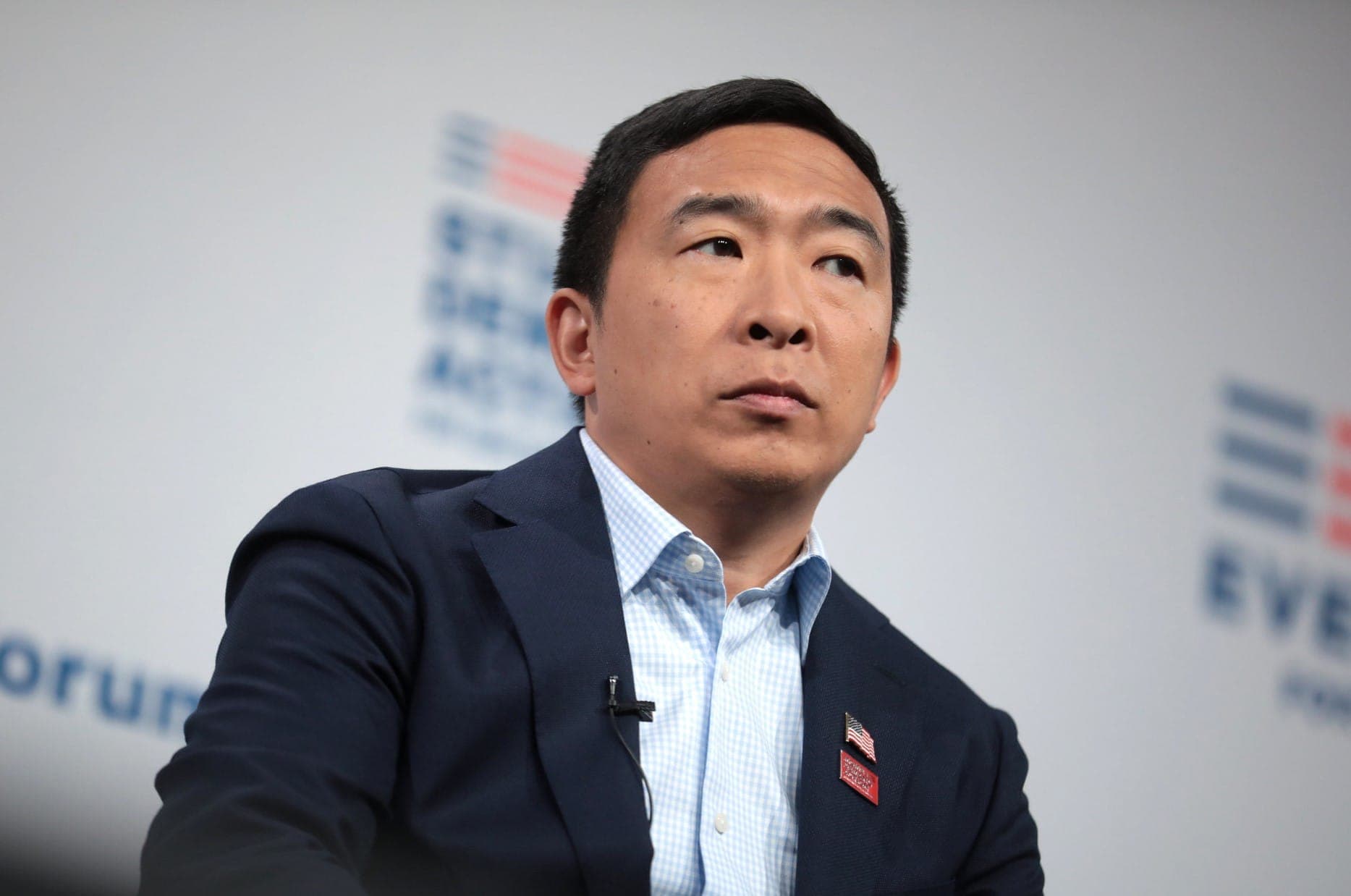What RFK's Mistakes Teach Us About the Future of the Independent Movement

Editor's Note: This op-ed originally published in The Fulcrum and has been republished on IVN with permission from the publisher. Photo by Gage Skidmore on Flickr.
Now that the celebratory trashing (by Democrats) and overheated celebration (by Republicans) of Robert F. Kennedy Jr.’s decision to suspend his independent presidential bid and back former President Donald Trump is in the rearview mirror, it’s time for an independent to sort this one out.
I’m an independent, been that for 40 years. I was not a Kennedy backer though I did respect his right to run and admired his decision to cut ties with the Democratic Party and become an independent after the party imperiously sidelined him. For context here, I also supported No Labels' right to seek ballot access for a unity presidential ticket, even though I didn’t think they could produce one. And, when Andrew Yang left the Democratic Party to build the Forward Party, I joined him on its national board of directors, though in this instance I am not writing as a representative of Forward.
It’s worth noting that the cabal of inflamed detractors of all three independent efforts (and many, many more) share some common names and addresses.
I don’t support Kennedy’s decision. I think it is the outcome of a set of spectacular mistakes, largely driven by his lack of any serious connection to the realities of independent politics generally and running for president as an independent, in particular. Here are a few of them.
1. You can run a campaign to win, but you also must speak openly and definitively about whether your campaign has merit if you don’t. If a candidate is going to challenge the fundamental premises and rules of the two-party system, they must be willing to challenge the notion that there is only one measure of success: winning. For the independent movement — which now stands to represent 51 percent of Americans but is hamstrung by the blindingly authoritarian control exerted by both major parties — campaigns can be run to build. Ross Perot didn’t win the presidency in 1992, but he got 20 percent of the vote. Next thing you know, the United States had a balanced budget. RFK never did anything close to this. He simply wanted to win. And when he saw that he couldn’t, he bailed.
2. Know your history, dude. An independent can cut a deal with a major party, but they need to make it a good one. RFK’s inability to extract anything useful from the Trump clan, which is notorious for unpaid debts in all things political, financial and personal, is just bewildering. Though the critics are busy crowing about how RFK’s campaign was a vanity project playing on his good name, he might have used his good name and the power of an independent base to extract some specifics. How about calling for a Trump repudiation of the rioters (not the protestors) on Jan. 6, 2021? That would have tested Trump’s desire to gain credibility with independents, accomplished something that the Democrats, who are so vested in demonization, couldn’t do and settled a score that remains a festering wound in the body politic. If Trump said no, it’s time to walk.
3. Get something real that demonstrates the humanism of the independent movement. RFK settled for a commission or task force or some amorphous government body to address chronic disease among children. In his suspension speech, Kennedy said poignantly that “we have to love our children more than we hate each other.” So true and so painful that politics has become so debased that somebody even has to say that. He deserves credit for saying it and the passion he feels for this crisis was apparent. You’d have to have a pretty cold heart not to see it, if you watched the press conference. However, anyone who has spent two minutes in politics knows that government task forces or commissions are the place where worthy ideas go to die.
4. Understand the process. Yes, the ballot access requirements for an independent presidential candidate are bizarre and impossible. Yes, Kennedy collected a million signatures. But, as opposed to the story told at his suspension press conference, he is not the first independent candidate to meet those requirements (which RFK ultimately didn’t meet because he didn’t file all of them.) In 1988, Lenora Fulani, a Black developmental psychologist and progressive community leader who cares as much about poor and chronically ill children as Kennedy does, collected over a million signatures, was certified to the presidential ballot in all 50 states and Washington, D.C., and became the first woman and first African American ever to do so. In 1992, Perot’s lawyers called her to ask how to get on those ballots. This legal and technical interaction led to the founding of the national Reform Party, a true right/center/left independent coalition in which Fulani’s followers and Perot’s voters melded into an historic, if disrupted, independent experiment. Suffice it to say, RFK did nothing to learn about and connect with this history, its leaders or its method. Apparently, he spent more time talking with the Trump crowd than he did with the movement that got him into those rooms. Not smart.
Still, my objection to Kennedy’s choice was not just that he gave away the store, though I wish he hadn’t. It was his failure to conduct his campaign — including its dissolution -– in a way that nourished and built the case for independent politics.
There are multiple forces building and vying for influence, even dominance, within the independent political movement. And there are millions and millions of Americans who are looking for a way to get off the bipartisan bandwagon. They need somewhere to go. While RFK inspired and mobilized thousands of those outsiders, he left them at the altar when he embraced Trump. He said he would remain on the ballot in the pre-set red and blue states but gave no motivation to vote for him in those states.
He could have said, “Let’s go get a big independent vote in those states, because even as I am endorsing Trump, the more the independent vote grows, the more leverage our movement will have to pressure the government — no matter who presides over it — for the things our country desperately needs. In fact, you should vote your conscience in November. And if you want to vote for another independent presidential candidate in states where I’m not on the ballot, do that. We must keep growing our movement.”
But he didn’t.
Now come the endless calculations about whether Kennedy’s exit will help or hurt Trump or be an inconsequential non-factor in the world controlled by Republicans and Democrats. Such is the aftermath of a failed independent project. But the anti-corporate greed and anti-war roots of RFK’s independent campaign remain, despite his alliance with Trump. The forward motion of up-from-the-bottom party-building of the Forward Party, which chose not to run or endorse a presidential candidate this cycle but to instead run down-ballot candidates and nurture independent infrastructure, is creating its case for the future of the movement.
The grassroots enthusiasm and open wallets that drove the failed No Labels strategy, the upcoming Independent National Convention in September, the mounting numbers of ballot initiatives that transfer power from the parties to the voters, and the existential fact that half the country defies the partisan grid in its self-identification should not be taken lightly.
This is a disunited force that has acquired a long list of failures — failures that can become the building blocks of innovation and transformation if we play our cards well. This pattern will likely continue for some time, until the moment when critical mass and critical thinking combine to move past failure to something better.






